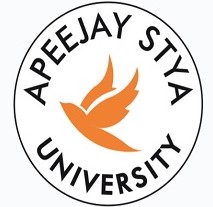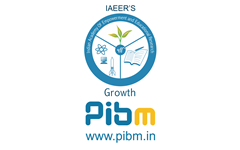
Top Trending Universities










Duration :
4
Average Salary :
-
Average Fees :
-
Job Demand:
B.Tech (Bachelor of Technology) is a four-year undergraduate programme in engineering and technology. The B.Tech course's major goal is to teach practical knowledge of applied engineering ideas across a variety of specialities. In technological domains, BTech graduates have a lot of work options and are engaged as consultants, subject matter experts, researchers, managers, and other roles in addition to engineering.
| Type of Degree | Bachelors |
| Full Form of degree | Bachelor of Technology |
| Duration of degree | 4 Years. |
| Age criteria | 17 - 22 years |
| Minimum Percentage required | 60% in 10+2 |
| Average Fees per year | 1 to 2 lakh |
| Similar areas of Study | Bachelor of Engineering |
| Minimum Salary | 5 to 6 lakh per year |
| Job Roles | Software Engineer, Quality Analyst, Software Tester, etc. |
A Bachelor of Technology, according to Wikipedia, is a degree in technology "After completing a three- or four-year programme of study at an approved university, an undergraduate academic degree is awarded. In general, persons who have completed a degree programme that is complemented either by occupational placements or training classroom courses are conferred the degree." The B.Tech curriculum is divided into eight semesters, with topics ranging from fundamental engineering to specialised engineering.
In order to be admitted to B. Tech programmes, applicants must meet the minimum cutoff criteria set by all colleges. Aspirants must have completed the 10+2 exam with Physics, Chemistry, and Mathematics as core courses from a recognised board. They should also have received a minimum of 60% in all of the above topics taken together. In addition to their 10+2 grades, candidates must take common entrance exams such as JEE, BITSAT for admission into B.Tech.
There are two options for entrance to the B.Tech programme. Students are admitted depending on their performance in national and state-level entrance exams. The cutoff for them would differ according to the college chosen, the category to which they belong, and so on. Though the admissions process differs for each college, the following are the stages that need to be followed in order to gain admission into the B.tech programme.
The majority of institutions now conduct their full admissions process online for B.Tech study courses. Students must go to the online web page of the colleges they are interested in and begin the application process by providing information such as their name, phone number, email address, and course preferences, among other things. For offline registration, students must go to the college of their choice and fill out an application form for the B.Tech course with the required documents attached.
After the application has been accepted, the college may require a further round of group conversation or a personal interview before admission is guaranteed into the B.Tech course.
B.Tech. programmes are only available as full-time programmes. The course has a greater emphasis on practical learning rather than academic studies, allowing students to have a better understanding of workflow in any subject. There are a variety of engineering and technology applications, each of which is pursued as a distinct specialised domain. Technical personnel are required to oversee the operations and development activity in these various sectors. B.Tech Engineers in India have a wide range of specialisation options that has resulted in a wide range of work opportunities. The following are the many types of B.Tech programmes accessible in India:
Numerous institutes give different entrance examinations for seeking admission to B.Tech degrees. National-level admission tests, state-level entrance examinations, and university entrance examinations are the three types of entrance examinations. We'll break down and clarify the entrance exams into three categories: nationwide, state, and institute-specific exams.
B.Tech Engineering is one of the most popular courses among students in the United States. In India, national and state-level entrance exams serve as a primary screening method. The students who have finished their higher secondary school with physics, chemistry, and maths as required courses are entitled to take part in these entrance exams for B.Tech courses.
The duration of the admission exams would be between 3 and 3.30 hours.
The following is a list of the country's top ten B.Tech colleges:
| Ranking of colleges | Top B.Tech Engineering Colleges |
| 1 | IIT Madras |
| 2 | IIT Delhi |
| 3 | IIT Bombay |
| 4 | IIT Kharagpur |
| 5 | IIT Kanpur |
| 6 | IIT Roorkee |
| 7 | IIT Guwahati |
| 8 | IIT Hyderabad |
| 9 | College of Engineering Anna University, Chennai |
| 10 | NIT Trichy |
If you pass the admission exam, you can apply for a scholarship for a B.Tech course through the state and college of your choice. The cost of a BTech course varies depending on whether it is taken at a college or a university. The average Bachelor of Technology [B.Tech] course fee is INR 1.5 - 2 LPA. Some B.Tech fees in prominent colleges across India are listed below:
| S.No | B.Tech College | Annual Fee in INR |
| 1 | Indian Institute of Technology, Madras | 9 lakh |
| 2 | Indian Institute of Technology, Kharagpur | 8.3 lakh |
| 3 | Indian Institute of Technology, Kanpur | 9.4 lakh |
| 4 | Indian Institute of Technology, Patna | 8 lakh |
| 5 | National Institute of Technology, Tiruchirapalli | 6 lakh |
In India, mathematics is a required subject for all B.Tech specialities. Other subjects, on the other hand, differ from one area to the next. The fundamental notions of physics and mathematics are the same in all specialities. Some topics in Electrical Engineering and Electronics and Communication Engineering, for example, are similar. Similarly, some CSE and IT disciplines could be the same. The following are among the subjects covered in the curriculum of B.Tech course:
B.Tech is one of the most popular programmes among Indian students. It assists students in gaining sufficient hands-on experience based on academic principles necessary for a certain industry. Let's fine-tune our response to "Why Choose B.Tech?" by dividing it down into the following three brief questions:
A bachelor's degree in technology (B.Tech) is a four-year engineering programme. It is very data/skill-oriented. The programme emphasises application-based engineering studies, allowing students to gain practical experience during their studies. The B.Tech curriculum places a greater emphasis on engineering and technology principles. It assists graduates in modifying buildings and improving their quality.
The B.Tech programme is unique in that it provides academic knowledge through practical sessions. The course teaches students how to comprehend the needs of the industry and how to provide answers that are often good technically. Some of the capabilities of B.Tech graduates are listed below:
In a B.Tech programme, professional progression is extremely solid and dynamic. A B.Tech in any technical topic can lead to a rewarding career in a variety of fields. Let's look at some of the causes for this:
The B.Tech programme is unique in that it provides academic knowledge through practical sessions. The course teaches students how to comprehend the needs of the industry and how to provide solutions that are often technically sound. Some of the capabilities of B.Tech graduates are listed below:
Students might choose to work or pursue higher education after completing their B.Tech. They can either finish their M.Tech or pursue an MBA. After B.tech graduation, a B.Tech applicant can take an MBA to improve his or her employment. Companies prefer candidates who have administrative experience and knowledge because it will aid in the logistical side of things in addition to technical expertise. Some of the most prevalent post-secondary opportunities for B.Tech graduates include:
As a fresher, a B.Tech graduate can expect to earn between INR 15 and 30K per month. In other circumstances, a candidate's remuneration is determined by the job profile. A Project Engineer, Design Mechanical Engineer may expect to earn between INR 5 and 6 LPA on average [source: PayScale].
In technological domains, there are several job opportunities for B.Tech graduates. Any graduate who has completed a B.Tech degree can find work in practically any Indian industry. Bachelor of technology graduates are hired as consultants, subject matter experts, researchers, managers, and other positions in addition to engineering. Below is a list of some of the most common fields and companies that B.Tech holders can pursue as career options:
The Bachelor of Technology is among the most commonly approved programmes. Because of the different specialties available during the coursework, B.Tech scopes are broad. Because technical innovation is occurring in practically every industry, B.Tech graduates have a plethora of options. Due to their technical expertise, students with a Bachelor of Technology receive various benefits during employment interviews.
B.Tech Engineers can work in a variety of industries, including the B.Tech engineering industry and the construction industry. The education that students acquire while pursuing the course guarantees that they are kept up to speed on all pertinent facts. The following are some of the top recruiters for applicants with B.Tech engineering degrees who want to work in the B.Tech engineering industry:
A B.Tech engineer is compensated based on their experience and education. According to Payscale, the average compensation for a B.Tech graduate employment is between INR 5 and 6 LPA. [Image courtesy of Glassdoor] The average B.Tech pay in India is as follows:
| Job Role | Annual Salary of B.Tech |
| Software Developer | 2.5 lakh INR |
| Aeronautical Engineer | 6 lakh INR |
| Automobile Engineer | 6.2 lakh INR |
The IT sector has grown exponentially in recent years, and it is now one of India's most thriving industries. Aspirants can find a variety of employment and a very high pay range in this area. Getting a job is a difficult endeavour. Every year, tens of thousands of B.Tech students complete their studies and seek employment. The top private companies in India that hire engineers are listed below, along with the average starting wage for B.Tech graduates:
| Top Private Hiring Companies | Job Profiles | Salary |
| Ernst and Young | System Analyst, Software Tester, Freshers, etc. | 4 lakh INR |
| Capgemini | Technical Solutions Consultant, Vertical Business Manager, Fresher, etc. | 5 lakh INR |
| Renault Nissan Automotive India Private Limited | Production Engineer, Mechanical Design Engineer, Trainee, QA Engineer, etc. | 6 lakh INR |
| Accenture | Full Stack Developer, Networks Engineer | 6.5 lakh INR |
B.Tech Engineering is one of those professions whose need never seems to go down, and it is only expected to rise in the future. The situation is the same on a national and international level. Finding a job in today's world has never been easier. Several people prefer to look for work in other countries. Jobs abroad for B.Tech graduates are available all around the world. People prefer to work in foreign countries since the salary packages are larger, and the job profiles are often better than those available in India.
